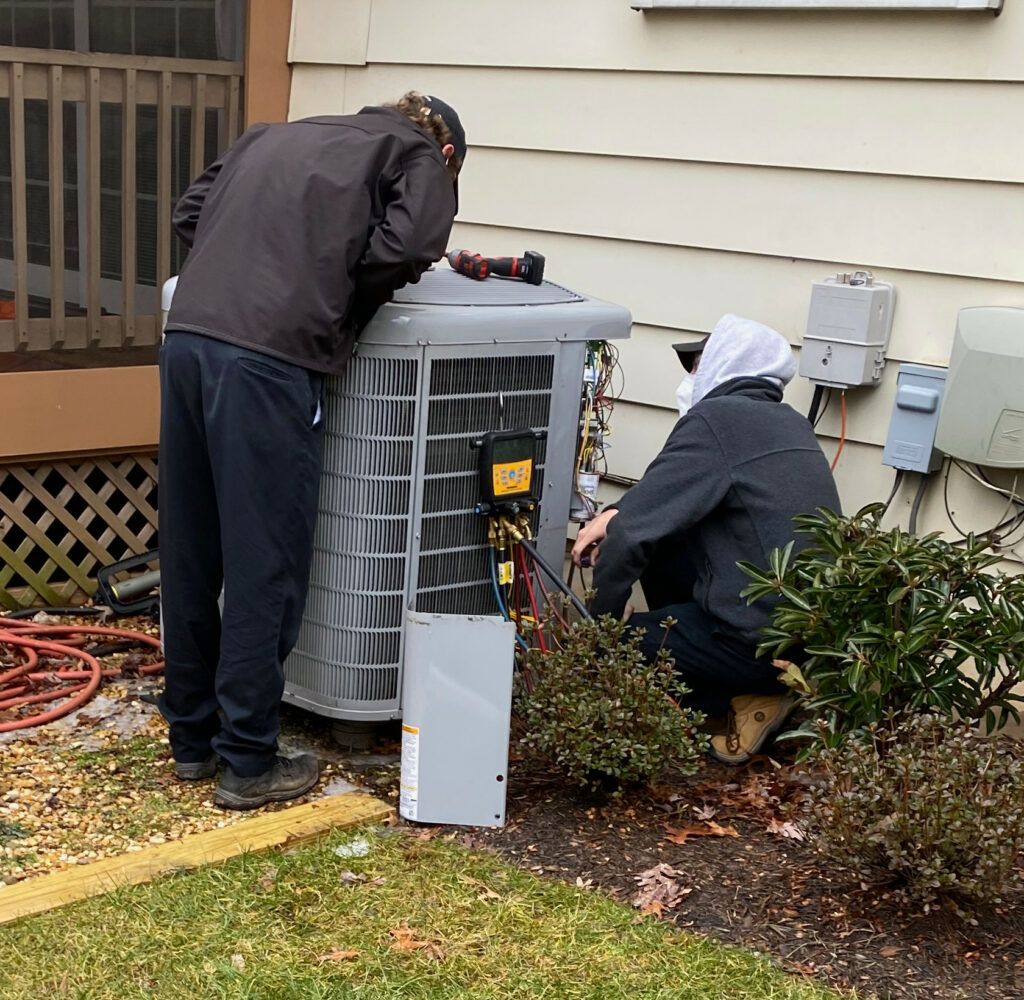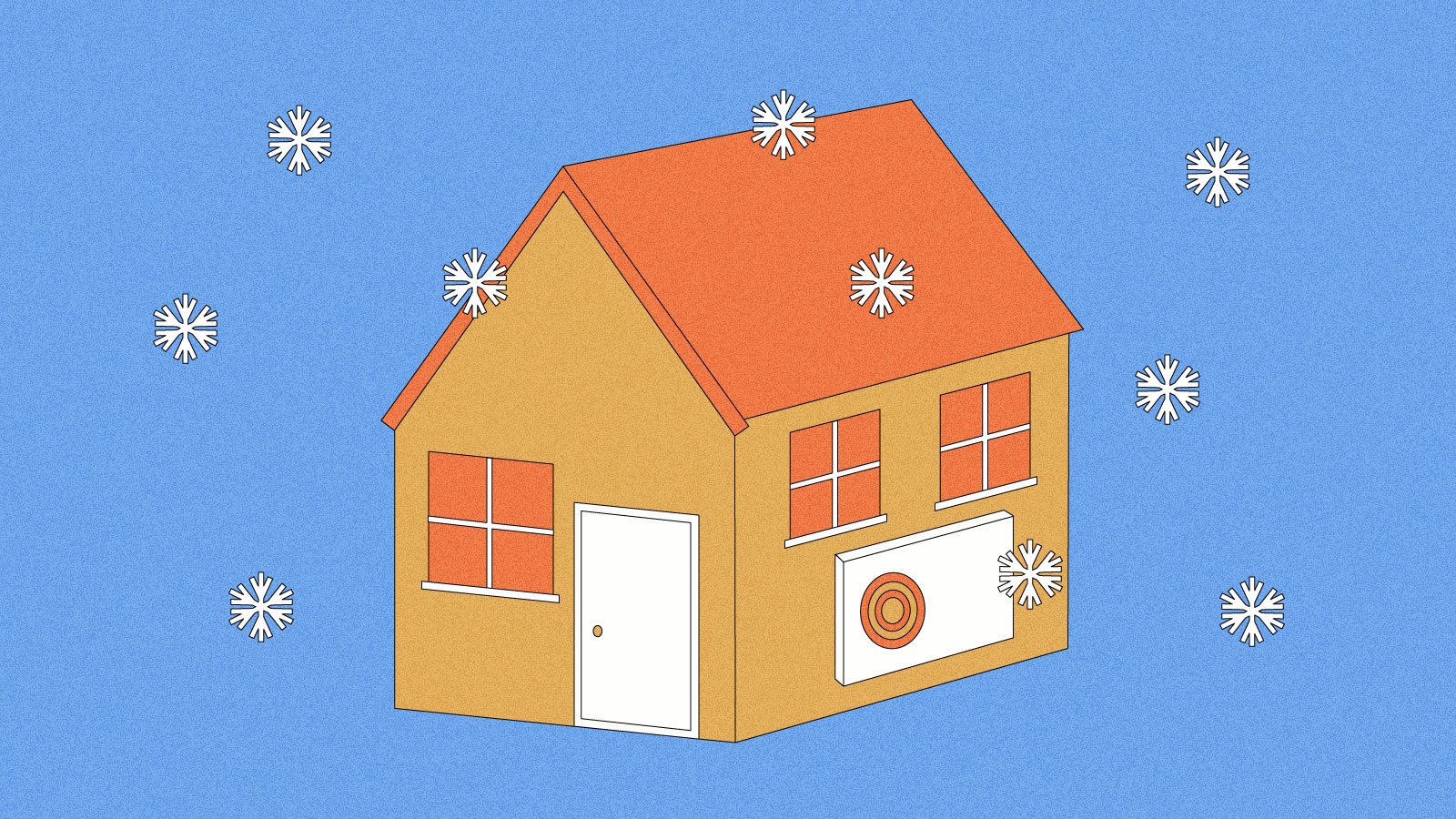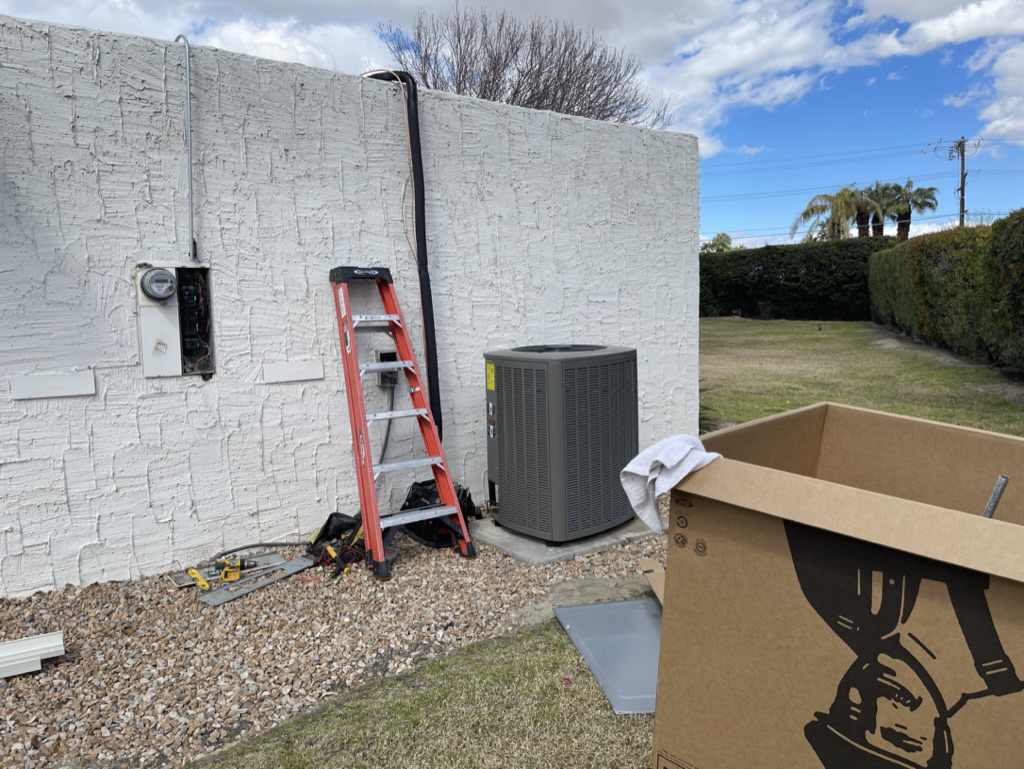Heat pumps work well and save energy but switching from natural gas can be a chore.
Heat pumps are sort of like electric cars. They work well and save energy but consumers are skeptical – will that electric car really make it all the way to Boston? Can a heat pump really keep my house warm in winter?
We don't know about driving to Boston in an electric car but as for winter weather, yes, a heat pump can keep you toasty on wintry days and in the summer, the same unit becomes a central air conditioner.
Heat pumps have been used routinely for decades in areas with relatively temperate climates, like the Mid-Atlantic states, which see blistering summers but relatively benign winters. But residents in other areas may need some convincing before they make the switch.
Californians are taking a closer look at heat pumps following a massive spike in natural gas rates there this winter. A Los Angeles townhouse dweller said her gas bill went from about $30 to $733 in January.
"I thought it was a mistake but it happened to everybody. Now I just turn the heat on in the morning and turn it off as soon as it warms up outside," she said.
This wasn't too surprising to me. Our gas bill in our three-bedroom condo in Southern California is usually around $37 in the winter. This January, it was $377, exactly ten times normal.
The natural gas spike was the result of a "perfect storm," utility officials said, blaming it on unusually cold weather, pipeline issues and the Russian fuel embargo, among other things. Prices should go down soon, they soothed.
But many Californians, who already pay the highest gasoline prices in the continental U.S., may not be willing to give natural gas another chance. Many are looking at heat pumps, although as we recently discovered, actually getting one isn't easy.
Heat with oil? Some older homes in the Northeast and Midwest rely on oil. If you have ducts in your home, you can probably make the switch a heat pump. If you have radiators or some other form of hot-water heat, it's probably not feasible.
We went shopping for a heat pump when the 20-year-old central air unit in our condo conked out. Like most people hereabouts, we had a natural gas furnace and a separate air conditioner. Having lived in Northern Virginia's heat pump belt for 30+ years, I knew all about heat pumps and wanted to get one here, replacing the two-stage gas/air system with a new, high-efficiency heat pump, thus eliminating natural gas.
We had three heat pumps in more than 30 years in Northern Virginia. All had their quirks but each was better than the one before – quieter, more efficient and more reliable.

The search begins
As the quest for a new heat pump began, I started calling and Googling around. The first contractor – let's call him Contractor A – didn't return a phone call or respond to a web site contact form. The second, Contractor B, responded immediately and showed up the next day.
The B team checked out my current air conditioner and pronounced it dead. Fine, I said, give me an estimate to rip out the gas furnace and replace the two-stage system with a heat pump. The next day, they sent me three very complete and detailed estimates – the usual good, better, best presentation.
I called contractor A again and when someone finally called me back, he said he could show up the following Wednesday. I sent him a detailed email saying what I was looking for. When he arrived, he took some measurements, then we went out and stood around in the gusty wind by his pickup truck as he scrawled some numbers on a brochure.
They were all for a gas/heat pump system, not what I wanted.
I called Contractor C, who turned up a few days later. He admired our dog, asked if I was going to the fair this year and said he understood exactly what I wanted. He then sent me two estimates, both for gas/heat pump systems.
Thoroughly annoyed, I called the B team and took the most expensive option, the most efficient, variable-speed, heat pump and a completely new "furnace" (the interior unit that replaces the gas furnace). The top-of-the-line option was a few thousand more than the mid-grade but it is, after all, a 20-year investment. I have learned the hard way not to buy the cheapest heat pump.
The variable speed option means your heat pump doesn't start and stop as often as single- or two-speed models, operates more quietly, keeps the temperature and humidity in your home more stable, and because it doesn't stop and start as much as the other types, reduces wear and tear on the equipment.
A few days after all the commotion, the new set-up was installed and running. It's not good-bye forever to the gas company, though. When our water heater gave up the ghost earlier this winter, the only plumber I could find insisted he couldn't possibly replace it with an electric unit.
"They don't work. They just don't make enough heat," he said, pocketing a cool thousand for a new gas unit. They do work, of course. We had one for decades in Virginia, supplying plenty of hot water with no noticeable effect on the utility bill. When one died after about 15 years, I was able to replace it myself.
Warning: Total replacement is expensive
This all sounds pretty good, you say. Yes, it does and yes, it is a good system that produces less pollution, emits less carbon and almost certainly is cheaper to operate than gas in most areas. Making the switch is expensive, though.
A new heat pump alone will set you back several thousand dollars, depending on the size of your house, the climate, the model your choose, and so forth. They last from ten to 20 years, so the cost is bearable over that time frame.
However, making the switch to an all-electric system is more expensive. It means ripping out the gas furnace and replacing it with a new non-gas unit that works in concert with the heat pump. The estimates for the job at our place ranged from $12,000 to $16,000. A lot of that is labor; it was a two-day job.
That's a lot of money to cough up. But it's a major home improvement and is the kind of thing you can reasonably finance with a home equity or credit union loan. One contractor offered us a 6% loan over 10 years. Company B was more than happy to take a credit card. We declined all those offers and shook the money out of some old boots.
The one consolation is that there are various rebates available for switching to heat pumps and also for switching to heat pump water heaters. We got an $800 rebate from Lennox, the manufacturer of our unit. There is also a federal program that offers a $2,000 heat pump rebate in the form of a tax credit.
Some states are also offering rebates but it's hard to nail down the details. Most state programs work through the contractors who install the system – making the process similar to buying a car and relying on the dealer to pass along the rebate intact.
Ready to go?
If this all sounds like something you're up for, it's a good idea to start early. If you wait until your existing heat source dies or needs major repairs, you may have trouble going through all the steps quickly. You don't want to spend big bucks unnecessarily but if your system is aging and your gas or oil bills are sky-high, it may be time to look closely at a heat pump.
Our advice?
Get three bids. Try to find an HVAC contractor with a good reputation, although this doesn't guarantee much. In our example above, Company A is the oldest and best-known contractor in the area and came highly recommended by everyone we spoke to. Bids will probably be about the same for similar equipment but you want a contractor who knows and understands heat pumps. Lots of them don't.
Don't cheap out. We have had cheaper heat pumps and they tend to be less reliable, noisier and less efficient. If you can spend a few thousand more, at least get a two-speed system. Variable speed is best. Don't get more capacity than you need. Most homes need a four- or five-ton unit. If you get one that's too big, it will cost more and be less, not more, efficient.
Be firm. Contractors don't seem to want to replace gas systems. They're worked with them for years and many will try to talk you into a mixed-source gas and heat pump system. As I learned, some will simply sneak it into the bid and hope you don't notice.
Want more details? Consumer Reports has a definitive report. Much of it is available to non-subscribers. Good luck. Stay warm. Or cool, which is appropriate.




